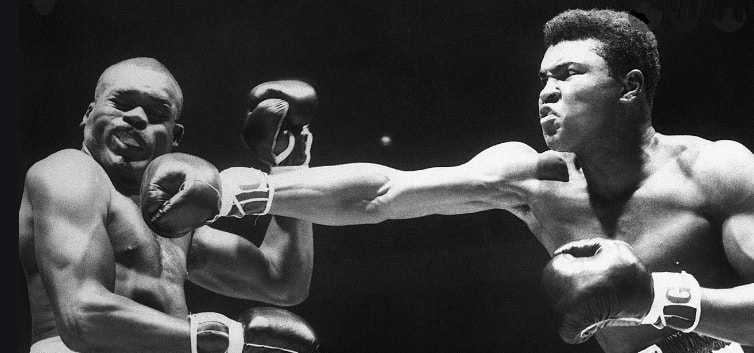|
Don't Miss a Beat: SUBSCRIBE on our Home page
|
|
7/31/2021 0 Comments Roots of Racism
This is the just way the ball bounces. We’re all the same and we’re all different. I don’t think this is necessarily a bad thing. By that I mean that I don’t think individuality is something that needs to be “corrected” or homogenized right out of existence. Far from it. I suspect this business of exploring different perspectives is one of the main reasons why spirit chooses to manifest into matter in the first place. How fun it must be to have all these unique points of awareness and attention! How fun it must be to spot yourself across a crowded room experiencing something you’ve never experienced for yourself! * * * My wife and I were driving in downtown Philadelphia the other day, and as we drove past the Liberty Bell / Independence Hall plaza she peppered me with the following questions: Isn’t it kind of silly to regard our country’s founders as champions of freedom and personal liberty, being as how they trampled all over the native people that already called this continent home? How could they say they opposed tyranny when they acted as tyrants themselves? Do you think they are just another example of white, racist men behaving badly, oppressing people with darker skin than theirs? These are great questions. My wife asks lots of great questions. I suppose my answer(s) reveals something about my fundamental reckoning on racism. I’ll share some of what I said here, mixed together with some other related ramblings. For the record: I’m just writing this down to better understand things for myself. I don’t want you to assume that I’m trying to be persuasive or that I’m looking to light anyone’s fuse on what I know to be a sensitive – maybe explosive – topic. Did the Europeans who settled this continent shit on other people in order to avoid getting shit on themselves? You betcha. I think they bullied their way into a space that didn’t belong to them, and I bet they were real evil bastards about it. But was it primarily an act of racism? No, I don’t think so. I think the Europeans overran the indigenous people because they had an economic incentive to do so, and because they had the technology to pull it off. It was a case of Might makes Right. Had the natives all had the same skin complexion as the newcomers, I think the outcome would have been the same. That said, it’s always handy to be able to visually identify the people you’re fighting and/or oppressing. In fact, when it’s not possible to do this with skin color or other racial clues, people tend to cook up other ways. For instance, identification badges and armbands helped the Nazis spot the Jews. Another, more relevant, example: The native tribes on this continent made themselves look different from neighboring tribes with special body art and styles of dress. Did they do this in order to “enable racism?” Obviously not. That would be a kooky way to look at it. It’s the other way around: A lot of times there’s an economic need (either perceived or real) to create boundaries, and sometimes it gets really, really literal, i.e., visual. Speaking of boundaries: The native people on this continent had carefully constructed tribal boundaries long before white people ever set foot here, and they fought each other fiercely to establish and maintain those boundaries. True, the natives did not have the same conception of “land ownership” as the Europeans, but they sure as hell had hunting grounds that they fought to protect. And they sure as hell conquered and enslaved neighboring tribes in order to expand those hunting grounds. The Comanches, enabled by a new technology called the horse, overtook and dominated the entire Great Plains, brutally massacring anyone in their path, white or brown or bronze or whatever. Morally speaking, this is the same game that the Europeans were playing. Such is history. Anyway…My point is this: I bet you’d be hard-pressed to find anyone that would call the Comanches racists. That’s because our current perspective on racism is warped by our current circumstances. Right now, at this slice in American history, our culture doesn’t seem to give two shits about any examples of racism that are outside of what’s currently being badged as “white privilege.” To me, this feels like a bogey, a hustle. I say this because, unlike the not-so-distant past, there is currently zero economic incentive for white people in this country to oppress people with other skin colors, and even if there was, there is no technology advantage to enable such an oppression. But even though active racism (or whatever you want to call it) in this country may be dead in the water, there are still some nasty remnants to deal with. For instance, there are still people lurking around who simply haven’t caught up with the times, haven’t read the latest Economics 101 memo that explains how racism leads to losses instead of gains. These people can be annoying, for sure, and sometimes harmful, but it’s only a matter of time before they fade away. I don’t even think there’s any need to take any coordinated action against them, legislative or otherwise. You can’t legislate morality after all, so why bother? You just have to trust that nature running its course means that the old-school racists will soon be gone. Like cobblers, they are no longer relevant to society. Another racism remnant that’s much harder to deal with is the ancestral hurt that continues to linger on, energetically speaking. The only person whom I’ve ever heard speak sensibly about this piece of the puzzle was Louis Farrakhan, who spoke on behalf of black people in this country for years and years. He was often labelled a radical or crackpot, mainly because of his ties with the Nation of Islam – which is a fair point – but if you listen to what the guy actually said, rather than what was said about him, you might conclude, like I have, that he was switched on. If you’re interested, here’s a great interview with him with Phil Donahue back in 1990: video link (If you watch this: Isn’t it interesting to see such an open and honest public discussion about racism? Good luck with that nowadays!) Now, I don’t agree with Farrakhan’s thesis that the moral solution to the white versus black thing is for white people to pay (monetary) reparations to black people to mend the wounds of the past. I think spiritual wounds require spiritual healing rather than a monetary fix. But it’s very interesting to me that he sought to settle the score in economic terms. And I think he’s spot-on in his assertion that you can’t wipe the slate clean as of today and expect ancestral pain to magically vanish. I think he’s spot-on on a lot of things. * * * The Might-makes-Right mentality seems to permeate all human cultures. You can see it in action on any playground, where a big kid is pushing a little kid around. You can see it in any number of historical situations where one group of people dominated/enslaved another group. Sometimes there are different skin colors or racial differences involved, but not always. It’s certainly not the case that light-skinned people have always dominated and oppressed dark-skinned people. To wit: The ancient Egyptians enslaved Jews while also being the darker lot; Germans bulldozed over the French while looking the same as them and being of the same racial heritage; etc. I think the native people on this continent would have gleefully chopped down the Europeans had they been able to do so. I think Africans would have done the same. But fundamentally, perhaps it didn’t have as much to do with visual differences as we might think. Perhaps it had to do with people wanting stuff and trying to take it from others regardless of what they looked like. I suspect that if everyone in the whole wide world looked just the same and we knew for certain that we all belonged to the same family, we’d still find a way to duke it out. It’d be the green-shirts versus the red-shirts. So when we get down to it, what really is racism? I wonder if what we call “racism” may be, in fact, nothing but a catch-all term for “economic rationalization.” Here’s what I mean: People are basically elbowing their way around in the world, looking for some economic security (needs related to survival) and/or advantage (wants related to comfort). And sometimes, unfortunately, people think they need to take things from other people in order to have what they think is enough for themselves. When this happens – and maybe because people are inherently good rather than evil – we sometimes need to make up stories in order to ease our conscience and justify our wrong-doings against others. Whenever these stories have a theme of individual or tribal superiority it becomes what we call “racist.” Whenever the stories have a different theme, it becomes something else. For example, if the Green-shirt Tribe thinks it’s better than the Red-shirt Tribe in the eyes of God such that it becomes OK for the Green-shirts to wail on them, that’s racism. If a sect within the Green-shirt Tribe thinks it’s better than the other Green-shirts in the eyes of God such that it becomes OK for the sect to wail on them, that’s elitism (or something else). But isn’t it really the same thing? Isn’t it some sort of nutty rationalization for bad behavior? So maybe all this business about skin color and racial heritage is just a cover story, a distraction that doesn’t even begin to get after the real issue: Why do we humans feel the need to collect ourselves into little tribes and sects and have so many us-versus-them stories and urges? Is there something that prevents us from simply getting along with one another, or have we been getting better at this over time? * * * As far as our country goes (wow – I took a ridiculously long detour to get around to this…), I don’t think it makes much sense to poo-poo our founding fathers’ sensibilities regarding freedom and personal liberty just because they’d never pass for non-racists by today’s standards. It may be appealing to think of white guys winning all the time because it’s consistent with our current experience, but in the broader context it’s not the case, and it’s not that simple. In the broader context, our founding fathers were no more or less “racist” than the indigenous people they were pushing around. They just had bigger guns. And when they felt kind of guilty about it, which appears to be the case, they fell back on the old “God’s will” rationalization and pronouncements of “manifest destiny” and all that malarkey.
I’d like to think that all people have always known in their hearts that it’s wrong to intentionally hurt other people, and that no amount of rationalization completely cleared away their guilt. In saying this I understand that there would be massive implications resulting from that knowing. It would mean that we are all carrying a huge karmic load because we all have skeletons in our ancestral closets, rattling at the lowest possible energetic vibration: that of Guilt. No human alive today would be free from it. What a drag. Perhaps this is the elephant in the room that we need to recognize and address in order to clear the air once and for all. But how do we do it? My best guess is that the only way to make it as a species is to love and forgive ourselves and each other. For instance, what if we looked upon our collective human history just as we would our own individual lives. What I mean is this: As individuals should we despise and punish ourselves for the dumb mistakes we made as teenagers when our brains weren’t even fully developed? As individuals should we despise and punish others who wronged us when they were teenagers? No way. We need to love and forgive the dumb teenagers that we once were and that everyone has been. Otherwise our present selves will remain stuck in a low-vibration rut. Maybe the same applies to human culture as a whole. Maybe when we look back at the racist and elitist atrocities of the past, we are looking at the stupidity of our own cultural adolescence, stupidity resulting from simply not knowing any better. Can we collectively love and forgive human culture as a whole? I think it’s worth a shot! Of course, culturally speaking, we may not be grown-ups yet. We might still be idiotic teenagers. Uh oh. That’d be a pickle. – O.M. Kelsey
0 Comments
|
AuthorO.M. Kelsey Blogs by Month
June 2024
Blog Categories
|
All content herein is Copyright © Chiliopro LLC 2020-2024. All Rights reserved.
Terms of Use Privacy Policy
Terms of Use Privacy Policy



